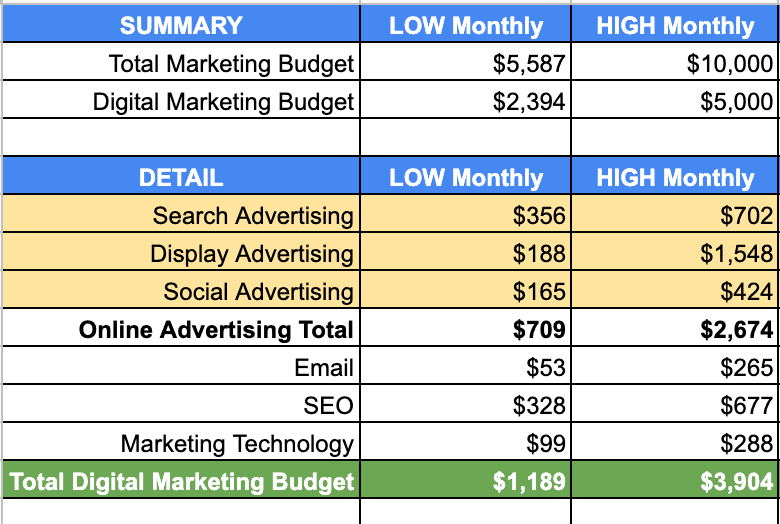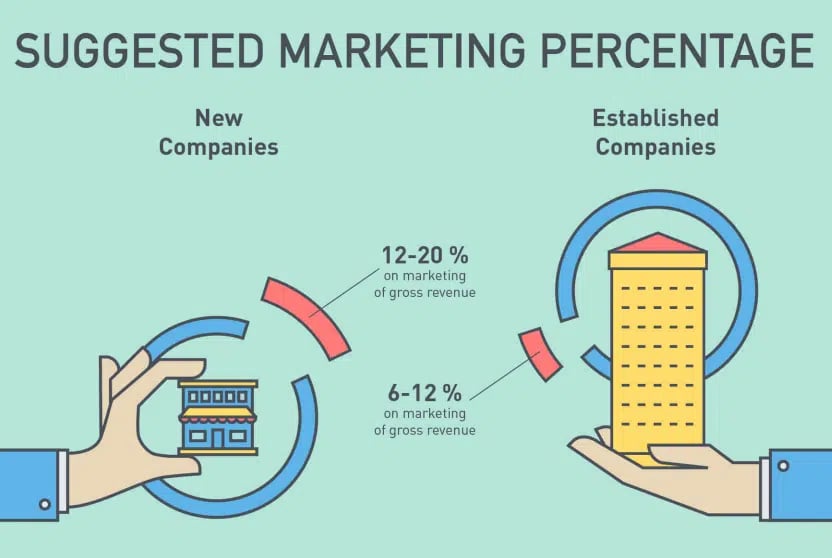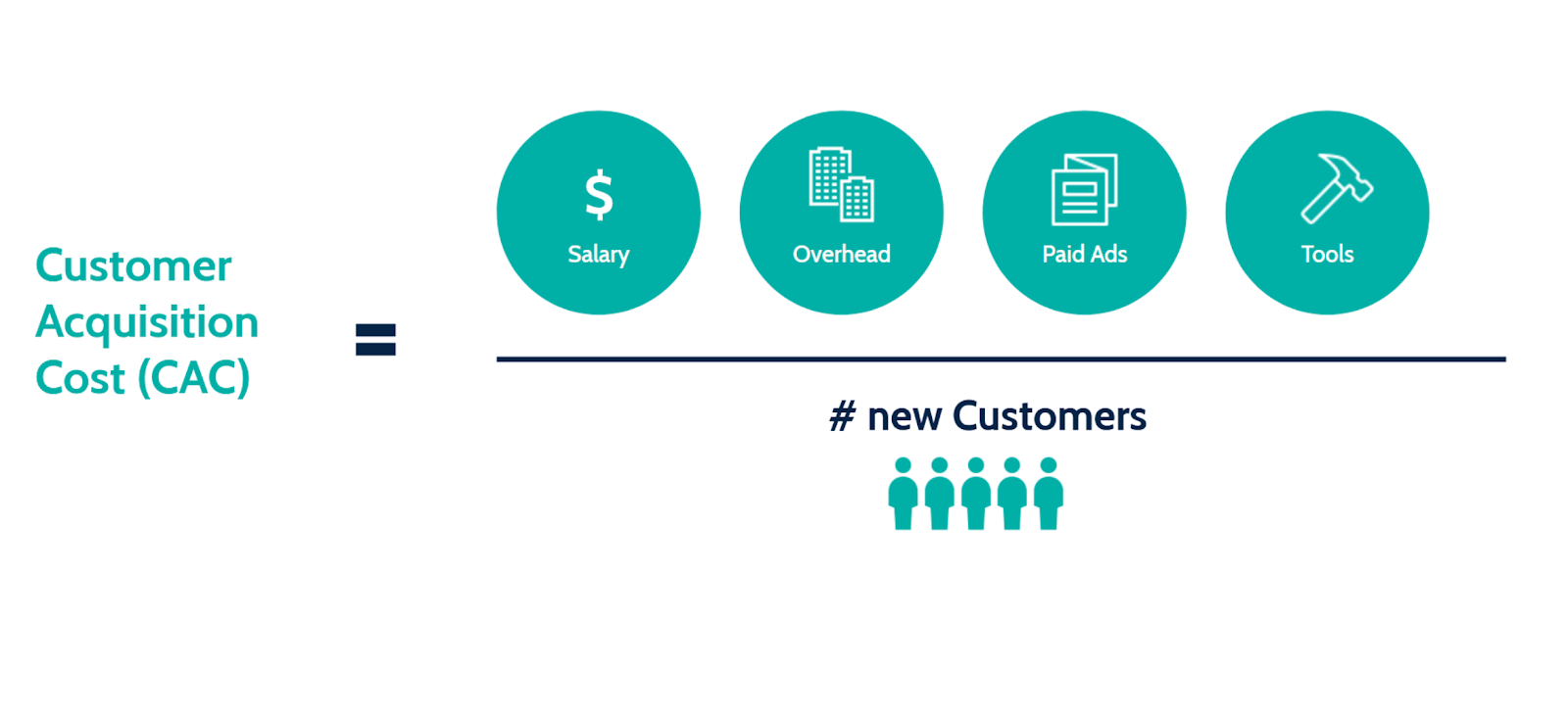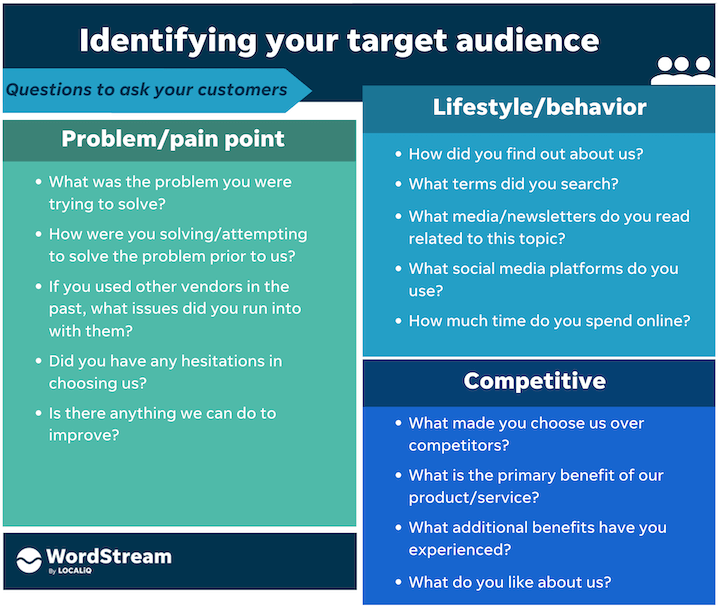10 Tips For Crafting an Effective Marketing Budget For Your Small Business
Discover essential insights on marketing costs for a small business. Learn strategies and effective tactics to optimize your efforts and maximize revenue.

Are you wondering why your business seems to be stuck in first gear? Maybe your marketing budget – or lack of one – holds the answers.
A budget isn’t just a list of expenses that you have to “reel in” to stay in business. Your marketing budget ensures that 1) you’re investing in marketing (a must) and 2) that your marketing is actually working.
Want to know how to build THAT marketing budget? Keep reading, and you’ll have everything you need to build a great budget you can be excited about.
Jump To:
- Why Is Defining Your Marketing Budget as a Small Business Important?
- 10 Tips For Developing a Successful Marketing Budget For Small Businesses
- Tip #1 - Allocate a Part of Your Company Revenue Into the Marketing Budget
- Tip #2 - Be Mindful About the Cost of Your Marketing Channels
- Tip #3 - Explore Cost-Effective Marketing Tactics
- Tip #4 - Measure and Track the Effectiveness of Your Existing Marketing Efforts
- Tip #5 - Experiment With Different Digital Marketing and Advertising Channels
- Tip #6 - Compare In-House Marketing vs. Outsourcing Costs
- Tip #7 - Calculate the Customer Acquisition Costs (CAC)
- Tip #8 - Analyze Your Marketing ROI and Spend
- Tip #9 - Research and Analyze Your Competitor's Marketing Strategies
- Tip #10 - Ensure Your Advertising Campaigns are Aligned With Your Target Market
- Conclusion
Why Is Defining Your Marketing Budget as a Small Business Important?

Source: Search Engine Journal
Defining your marketing budget is the foundation that can help you match your goals with sensible planning. Not only does it provide limits to keep your spending in check, but it also helps in crafting an effective marketing campaign plan.
With this guide, you can make specific investments in areas that matter the most. It also lets you properly manage your monthly spending by protecting you against high-expense months and optimizing during low-expense months. So, what are some other reasons why defining your budget is so important?
- Goals: Creating clear goals for your marketing will make sure that they are effective. They are clear standards you set and check so that you can make improvements and grow your sales.
- Checking Progress: When you’re keeping to a budget, you’ll be more in tune with how well your marketing is performing. You’ll also see ways to lower costs and improve results as you tweak your marketing plan.
- Spending Wisely: There are countless marketing tools and techniques out there that will gladly take your money. A budget makes you smarter with your marketing spending, saving you money in both the short and long run.
- No Surprises: Hidden fees pop up when you’re not keeping track of your marketing spending. A good budget will help you make sure you know all the costs before embarking on a new marketing tactic.
- Planning Ahead: Great financial planning does wonders for your business growth, so why should marketing be any different? A small business marketing budget makes it easier to plan ahead financially, helping you be ready for change, secure funding from lenders, forecasting your profits, and more.
How to Know That Your Marketing Works
Finding out how effective your marketing strategies are isn’t a matter of guessing – it comes down to a science. One of the clearest measures of this is return on investment (ROI), which involves dividing the sales you got from your marketing by how much your marketing cost you. ROI gives you a measurable way to understand how profitable each dollar spent really is.
Let’s think about this with an analogy. Imagine you’re fishing and every bit of bait you throw in represents all your marketing efforts. The ultimate goal is to reel in the right kind of fish – in other words, your potential customers. Not every fish in the water is what you’re after.
Some are Marketing Qualified Leads (MQLs), which are catches you want. These customers are genuinely interested in what you have to offer. Your job is then to get them to bite and become Sales Qualified Leads (SQLs), or customers. The better bait (marketing) you have, the more chances you’ll get to snag the best fish (customers).
10 Tips For Developing a Successful Marketing Budget For Small Businesses
Tip #1 - Allocate a Part of Your Company Revenue Into the Marketing Budget
If you’re a small business owner, you’re most likely no stranger to the concept of budgeting. But more specifically, you might be wondering, “How much should a small business spend on marketing?”
The general rule of thumb is to set aside 12 to 20% of your gross revenue for marketing activities if you’re a new company. If you’re a more established business, an average marketing budget is around 6 to 12%.

Source: Nuphoriq
Using this approach helps keep your marketing activities strong and consistent, giving your business the needed exposure to stand out. Just remember that these percentage ranges are just suggestions. It’s more important to set a budget that aligns with your goals and fits your industry standards.
Tip #2 - Be Mindful About the Cost of Your Marketing Channels
Small businesses usually juggle a larger number of marketing channels, from traditional print to social media marketing and email newsletters. But each of these avenues comes with its own price tag, some of which require a bigger investment than others.
To make the most of your budget, be picky about the channels you put your resources into. It’s not just about spending on every platform available but about using a calculated approach. Examine the benefits, reach, and ROI of each channel, so you can optimize where your marketing dollars are going and get greater returns.
Tip #3 - Explore Cost-Effective Marketing Tactics
Other than paying more attention to where you’re spending your money, you’ll also want to explore cost-effective strategies that give you high-impact results. For example, 71% of small-to-mid-sized businesses use social media, something that has proven to be a goldmine for small businesses. It’s wide-reaching, cost-effective, and there are many tools to help target specific audiences.
Then there’s content marketing, where you create informative, valuable content like blog posts that can naturally draw customers towards your brand. This way, your business builds credibility and ranks higher on search engines.
All in all, cost-effective marketing strategies aren’t just about spending less but spending smart.
Tip #4 - Measure and Track the Effectiveness of Your Existing Marketing Efforts
There’s one overarching reason why it's important to accurately measure and track your existing marketing efforts – you can’t manage what you can’t measure.
You might want to create key performance indicators (KPIs), which are metrics that assess the success of your campaigns. This could mean analyzing traffic, conversion rates, leads, or sales to see what’s working and what’s not. You could even use tools like Google Analytics for a better view.
But while you’ll want to keep tabs on the end results, you need to be watching the journey too. Precise tracking will help you spot trends, patterns, and potential issues early on, so you can decide when to ramp up investments and when to slow down.
Tip #5 - Experiment With Different Digital Marketing and Advertising Channels
While establishing your budget, don’t forget to leave room for some experimentation. The world of digital marketing is full of channels and platforms that offer unique opportunities. And given this, you get the chance to discover avenues you’ve overlooked that might resonate with your audience.
It’s also worth mentioning that marketing and advertising are often used interchangeably, but they aren’t the same. Marketing is the entire process of getting a product or service to the customer – from creating awareness to making the sale. Meanwhile, advertising is part of the bigger marketing puzzle. It’s all about getting your message to your target audience using a variety of ways to do it. So, be sure to pair them together for greater success!
Tip #6 - Compare In-House Marketing vs. Outsourcing Costs
There’s one major dilemma many small business owners face: whether to use in-house marketing or outsource. Both these strategies come with their own advantages, so making a decision depends on factors such as your skillset, budget, and how complex your campaign is.
Having your own in-house team can give you more control and consistency – your team knows your brand and can be more responsive to your needs. But on the other hand, maintaining a team could mean having to deal with salaries, benefits, training, and more.
Outsourcing to agencies and freelancers could get you the expertise you need, usually at a lower cost compared to hiring a full-time team. But you may not have as much control over the quality and style of that work.
Tip #7 - Calculate the Customer Acquisition Costs (CAC)
Customer acquisition costs are the total cost your business needs to spend to gain a new customer, from the first interaction to the conversion. These are important to know because it helps quantify the value of each new customer and determines how profitable and efficient your marketing efforts truly are.

Source: KPI Max
CAC equals the entire cost of all marketing efforts (salary, overhead, paid ads, and tools) divided by the number of new customers gained from them. So, for instance, if you spend $2,000 on marketing in a month and gain 20 new customers, your CAC is $100.
Tip #8 - Analyze Your Marketing ROI and Spend
Analyzing your ROI both validates your past marketing efforts and guides those in the future. It will essentially give you a good idea of which marketing channels and strategies are supporting your business growth, bringing in new customers, and boosting profits.
Make sure to keep track of your marketing costs and compare it against your ROI. You can then use this information to see if certain areas are underfunded and if others are a drain on resources without enough return.
Tip #9 - Research and Analyze Your Competitor's Marketing Strategies
Operating in a competitive business landscape requires you to predict what others are doing too. Taking the time to research your competitor’s marketing strategies helps you scope out what works and what doesn’t within your industry. Observe their ads, social media presence, website design, and content strategies, or even better, dig deeper into their SEO strategies.
It’s not about prying but rather gathering information so you can identify unique selling points and craft the best marketing strategies for your business.
Tip #10 - Ensure Your Advertising Campaigns are Aligned With Your Target Market
When your ad campaigns are aligned with your target market, you can become more confident that every dollar spent is aimed at engaging customers. This includes using compelling messages that resonate with them, choosing platforms where they spend time, and timing your ads to match when they’re most likely to interact. Alignment reduces wasteful spending and improves the impact of your campaigns.

Source: WordStream
If you really want to tailor your ads to your target market, work on understanding them and their behaviors and consumption habits. You can then adapt your message to different segments within your target market to increase relevance and effectiveness even more.
Using surveys, ask them questions like “What made you choose us over competitors?” or “What social media platforms do you use?” This will help you find out what type of people are using your product or service.
Reach Your Marketing Goals While Minimizing Costs
Optimizing your marketing budget isn’t about doing more with less – it’s about doing better with what you have.
Through the strategies we discussed, such as using informed spending and aligning your campaigns to your target market, your business can reap the benefits while keeping expenses grounded. A well-planned budget is a smart investment that will set you up for success, making sure every dollar spent has a purpose.
%20(1)%20(1).png?width=340&name=Group%2012%20(2)%20(1)%20(1).png)



